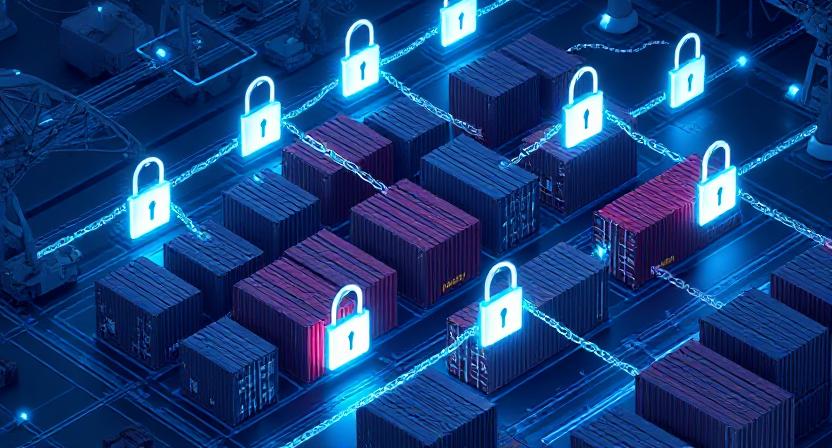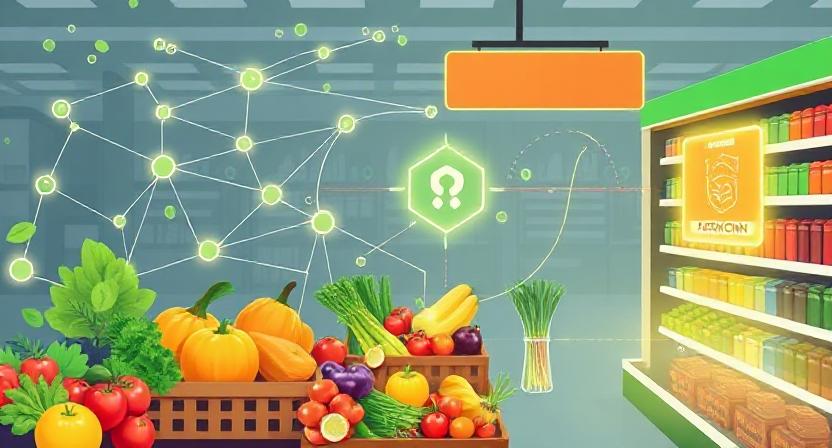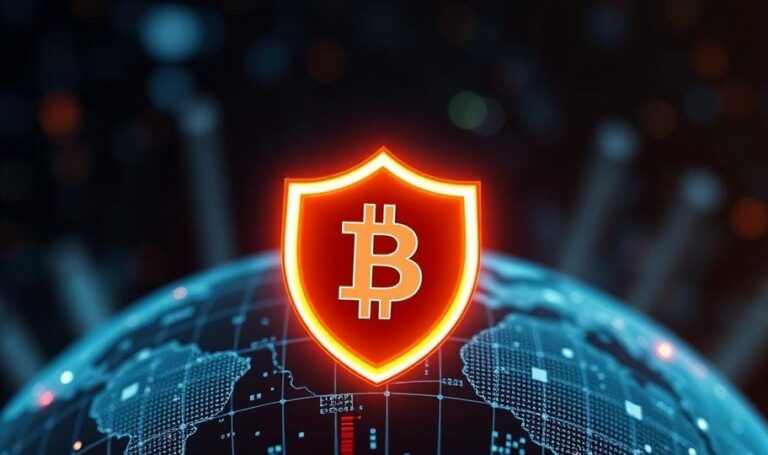2025 Blockchain Supply Chain Security with Live

Blockchain in Real-Time Supply Chain Verification In an era where global supply chains are increasingly complex ensuring transparency accountability and efficiency has never been more...
⏱️ Estimated reading time: 6 min
Latest News
Blockchain in Real-Time Supply Chain Verification
In an era where global supply chains are increasingly complex ensuring transparency accountability and efficiency has never been more critical. Consequently companies are dealing with multiple suppliers logistics partners and distributors often spread across countries. As a result traditional systems struggle to provide real-time verification of goods leading to risks such as counterfeiting delays and mismanagement.
Enter blockchain technology a decentralized immutable ledger that can transform supply chain verification. Specifically by offering transparency traceability and secure data sharing blockchain is redefining how businesses monitor and authenticate their products from origin to endpoint.
Why Real-Time Verification Matters in Supply Chains
- Counterfeit Prevention: Verifying product authenticity instantly.
- Operational Efficiency: Monitoring shipments inventory levels and logistics in real time.
- Regulatory Compliance: Demonstrating adherence to international and local regulations.
- Customer Trust: Providing end-to-end visibility to consumers especially in industries like food pharmaceuticals and luxury goods.
How Blockchain Works in Supply Chain Verification
Blockchain technology is revolutionizing supply chain management by providing a secure transparent and immutable system for tracking goods and transactions. Specifically each transaction such as the movement processing or verification of goods is recorded in a block and linked to the previous one forming a chronological chain. Consequently this decentralized ledger ensures that all participants have access to the same information thereby reducing the risk of fraud and errors.corporate.nvisionglobal.com
Key Benefits of Blockchain in Supply Chains
- Enhanced Transparency and Traceability
Blockchain allows for real-time tracking of goods from origin to destination. For instance Volvo Cars has implemented a battery passport that enables customers to trace the origins of raw materials used in electric vehicle batteries ensuring responsible sourcing and compliance with sustainability standards. - Improved Efficiency and Reduced Costs
By automating processes such as payments through smart contracts blockchain can streamline operations and reduce administrative overhead. This leads to faster transactions and lower costs for all parties involved. - Increased Security and Fraud Prevention
The immutable nature of blockchain records makes it nearly impossible to alter transaction histories without detection. This feature is particularly valuable in industries like pharmaceuticals and luxury goods, where counterfeiting is a significant concern. - Regulatory Compliance and Auditing
Blockchain provides a transparent and tamper-proof audit trail facilitating compliance with regulatory requirements. This is especially crucial in sectors like food safety where accurate tracking of product origins and handling is mandated.
Real-World Applications
Automotive Industry Volvo’s battery passport initiative allows customers to verify the sourcing and recycling of materials used in electric vehicle batteries. Food Safety Companies can trace the journey of food products from farm to table ensuring quality and safety. SEKO LogisticsLuxury Goods Authentication Blockchain helps verify the authenticity of high-end products protecting brands and consumers alike.
- Decentralization: All participants from suppliers to retailers can access the ledger without relying on a central authority.
- Immutability: Once recorded data cannot be altered ensuring auditability.
- Transparency: Each participant can verify the status of shipments and inventory in real time.
- Smart Contracts: Automated agreements that trigger actions when predefined conditions are met such as releasing payment upon delivery confirmation.
Implementation Steps for Blockchain in Supply Chains
Mapping the Supply Chain
Before implementation companies must map all nodes including suppliers transporters warehouses and retailers. Understanding the flow of products is critical to determine which data needs to be recorded on the blockchain.
Choosing the Right Blockchain Platform
- Hyperledger Fabric: Permissioned blockchain ideal for enterprise use.
- Ethereum: Supports smart contracts and public or private deployments.
- VeChain: Designed for supply chain and logistics verification with IoT integration.
The choice depends on factors such as transaction speed privacy requirements and scalability.
Integrating IoT Devices
IoT sensors enhance blockchain by capturing real-time data such as temperature humidity GPS location and shipment status. Moreover these readings are automatically recorded on the blockchain ensuring that environmental and handling conditions are verifiable.
Smart Contract Deployment
Smart contracts automate compliance checks and financial transactions. For instance a smart contract can automatically release payment to a supplier once a shipment is verified at the receiving warehouse.
Stakeholder Training and Onboarding
Blockchain adoption requires training for all participants. Everyone must understand how to interact with the ledger input accurate data, and verify transactions without compromising security.

Real-World Applications
Blockchain is increasingly used to trace the origin and journey of perishable goods. For example Walmart and IBM’s Food Trust platform track produce from farms to shelves ensuring freshness and reducing waste. Real-time verification allows retailers to recall contaminated products quickly minimizing risk to consumers.
Pharmaceuticals
Counterfeit medicines pose a serious threat to public health. Blockchain helps track pharmaceuticals from manufacturers to pharmacies. By recording batch numbers storage conditions and distribution points the system ensures that only authentic drugs reach patients.
Luxury Goods
Brands like LVMH use blockchain to authenticate high-value items, such as handbags and watches. Customers can scan QR codes to access verified information about product origin ownership history and authenticity.
Logistics and Transportation
Companies like Maersk leverage blockchain for container tracking. Shipping records customs clearance, and cargo handling data are recorded in real time reducing delays disputes and documentation errors.
Benefits of Blockchain for Real-Time Supply Chain Verification
Improved Traceability: Recording every product movement enables teams to quickly investigate issues.
Challenges in Blockchain Implementation
Despite its potential blockchain adoption in supply chains is not without challenges:
Data Accuracy Blockchain verifies data, but inaccurate or fraudulent data input can compromise the system.Scalability Large-scale supply chains generate massive transactions which may affect performance.Integration with Legacy Systems Many companies have existing ERP or logistics software that must integrate seamlessly with blockchain.Cost and Expertise Initial setup IoT integration and staff training require investment and specialized knowledge.Interoperability Different blockchain networks may have compatibility issues especially in global supply chains.
The Future of Blockchain in Supply Chains
- AI and Blockchain Integration: AI algorithms can analyze blockchain data for predictive insights such as demand forecasting or supply chain risk assessment.
Conclusion
While challenges remain especially regarding scalability data integrity and integration the benefits are substantial. Companies that adopt blockchain for supply chain verification gain a competitive edge improve compliance and enhance stakeholder confidence.If you want I can also generate an SEO keyword set meta title and meta description specifically for this post to help it rank in search engines.
Related Posts

Shield Raises $5M for Crypto Business Transactions
Shield Secures $5M to Facilitate Global Crypto Transactions Shield, a crypto venture backed by a16z,...
September 22, 2025

Jar Fintech Achieves Profitability via Gold Savings
Indian Fintech Jar Turns Profitable with Gold Savings Indian fintech startup, Jar, has achieved profitability...
September 19, 2025

Waymo Hits 250k Autonomous Taxi Rides AI Mobility on the Rise
Waymo’s Autonomous Rides Milestone and the Future of AI-Driven Mobility The year 2025 is proving...
September 17, 2025











Leave a Reply